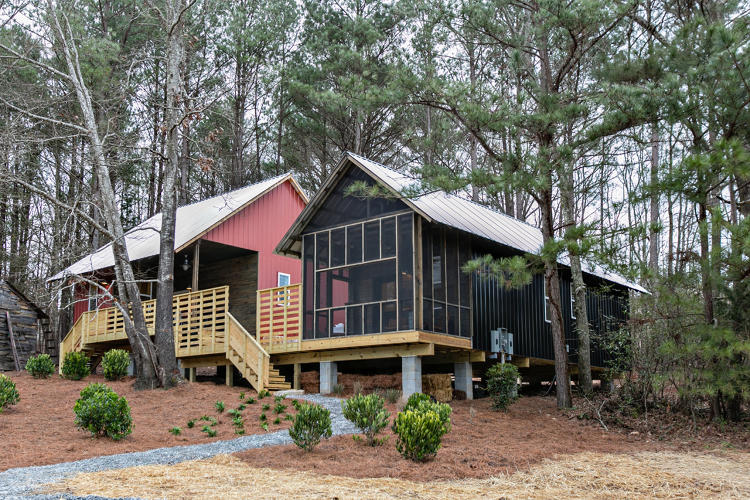For over a decade, architecture students at Rural Studio, Auburn University's design-build program in a tiny town in West Alabama, have worked on a nearly impossible problem. How do you design a home that someone living below the poverty line can afford, but that anyone would want—while also providing a living wage for the local construction team that builds it?
In January, after years of building prototypes, the team finished their first pilot project in the real world. Partnering with a commercial developer outside Atlanta, in a tiny community called Serenbe, they built two one-bedroom houses, with materials that cost just $14,000 each.
The goal: To figure out how to bring the ultra-low-cost homes, called the 20K Home, to the broader market. "We're in a kind of experimental stage of the program, where we're really trying to find out the best practice of getting this house out into the public's hands," says Rusty Smith, associate director of Rural Studio. "Really this first field test was to find out all the things that we didn't know, and to find out all of the kind of wrong assumptions that we had made, and really find out how we had screwed up, honestly."
Years of architecture students, and their advisors, have spent more than a hundred thousand hours tweaking each detail of the house to optimize both the function and the price. But the bigger challenge is fitting a house that's completely different than normal into the existing system of zoning, and codes, how contractors do their jobs, and even mortgages.
"The houses are designed to appear to be sort of normative, but they're really high-performance little machines in every way," says Smith. "They're built more like airplanes than houses, which allows us to have them far exceed structural requirements. ... We're using material much more efficiently. But the problem is your local code official doesn't understand that. They look at the documents, and the house is immediately denied a permit simply because the code officials didn't understand it."
Continue reading: http://www.fastcoexist.com/3056129/this-house-costs-just-20000-but-its-nicer-than-yours
Relates article: This House Costs Just $20,000—But It’s Nicer Than Yours
